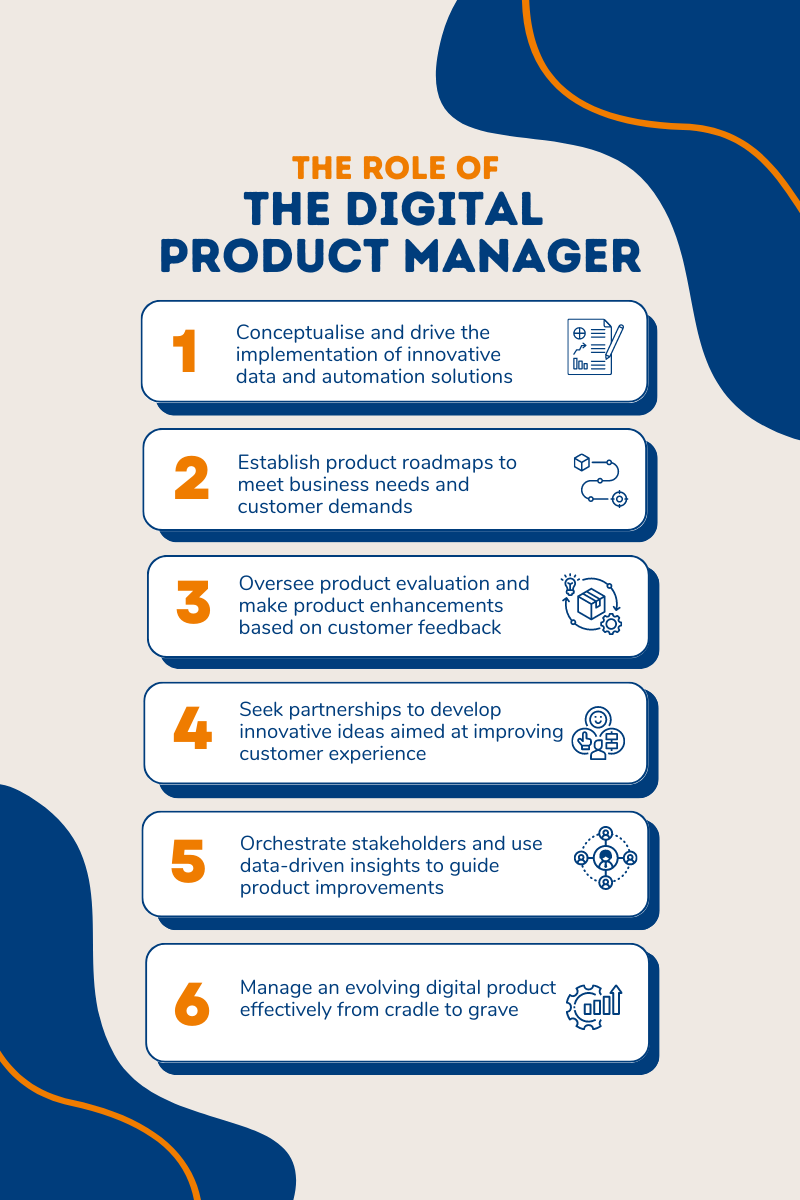In the first of this three-part series on product growth engine for innovation and business growth, we examine the role of a product manager in the digital landscape.
Digital technology has created opportunities for companies to disrupt competition and develop new markets globally. In Singapore, GovTech is positioned at the forefront of digital readiness and adoption in accelerating the development of digital products and services to meet the needs of both citizens and businesses. The Infocomm Media Development Authority (IMDA) has also identified product development as an area of promising tech jobs for Singaporeans, which will support the region’s growing demand for digital solutions. These are technology roles that are responsible for developing a strategy, roadmap, and features for products, such as data analysts, programme managers and data scientists. Tech talent in these roles help in creating, building and scaling digital products.
To successfully deliver business value to customers and stakeholders, many companies have included a common thread around digital product management that runs through many of their newer job descriptions in their recruitment drives, which outlines the roles and responsibilities to deliver digital products. Many organisations have also been recruiting digital product managers, including the following job posting at IMDA on 15 Feb 2021:

“The Digital Product Manager plays a key role in partnering IMDA’s divisions and digital product development teams to conceptualise, drive implementation and adoption of modern, innovative data and automation solutions. The incumbent would manage the digital product development life cycle from strategic planning to tactical activities, acting as a liaison to establish product roadmaps to meet business need and demand. The incumbent shall also guide the digital product development team from conception to production, devise measures, oversee the evaluation of product functionalities and performance, and propose enhancements and/or improvements to products based on user feedback. The incumbent seeks active partnerships to form innovative ideas and approaches to improve user experience that aims to increase consumption and adoption rate.”
A McKinsey & Company article, “Product Managers for the Digital World”, in 2017 mentioned the expanding role of product management in the digital world. A broader role is needed beyond that of the traditional product manager, one that entails orchestrating stakeholders and leveraging on data to make product decisions to manage a continually evolving digital product through its lifecycle.
The digital product manager has been an emergent role since then that is driven by changes in technology, development methodologies, and decision-making in purchases made by consumers. Many organisations are seeking digital product managers with a computing background who enjoy big picture perspectives and want to master a holistic approach to creating successful digital products.

